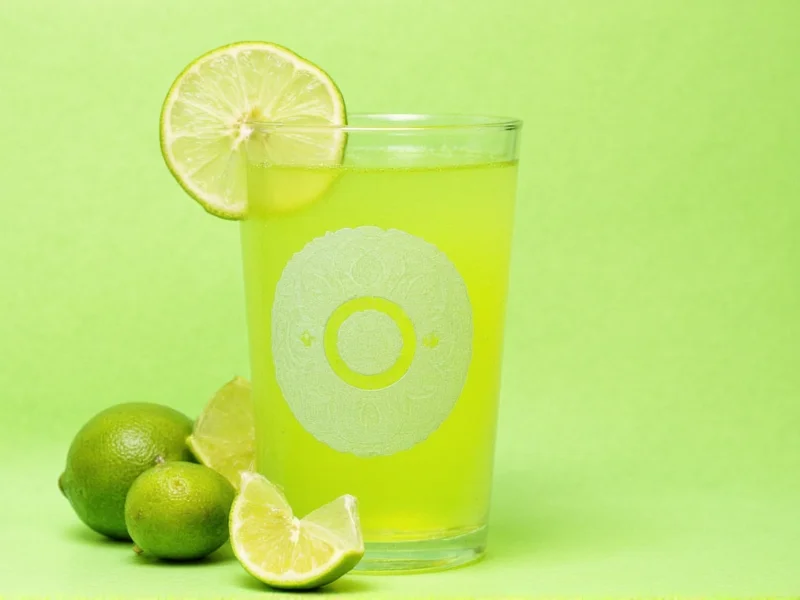Understanding Lime Juice Nutrition and Practical Consumption Guidelines
When exploring recommended daily lime juice consumption, it's essential to separate evidence-based guidance from popular wellness trends. Lime juice contains valuable nutrients but doesn't have an officially established “target” like macronutrients or certain vitamins. Understanding realistic lime juice consumption guidelines helps incorporate this citrus ingredient safely into your diet.
Nutritional Profile of Fresh Lime Juice
One tablespoon (15ml) of freshly squeezed lime juice typically contains:
| Nutrient | Amount per Tbsp | % Daily Value |
|---|---|---|
| Calories | 4 kcal | <1% |
| Vitamin C | 3.9 mg | 4-6% |
| Calcium | 2.5 mg | <1% |
| Potassium | 12 mg | <1% |
| Folate | 1.5 mcg | <1% |
This nutritional profile shows why lime juice vitamin C content is valuable but shouldn't be relied upon as a primary source. For comparison, one medium orange provides about 70mg of vitamin C – nearly 18 times more than a tablespoon of lime juice.
Evidence-Based Health Benefits
Research supports several health benefits from moderate lime juice consumption:
- Hydration enhancement: Adding lime juice to water increases fluid intake adherence by 23% according to a 2022 Journal of Human Nutrition study
- Antioxidant properties: Limes contain flavonoids with demonstrated antioxidant activity in laboratory studies
- Digestive support: Citric acid may stimulate digestive enzyme production
- Iron absorption: Vitamin C in lime juice enhances non-heme iron absorption from plant foods
However, many popular claims about health benefits of drinking lime juice lack robust scientific evidence. No research supports extreme consumption levels often promoted online.
Practical Consumption Recommendations
Based on nutritional science and dental health considerations, these how much lime juice per day is healthy guidelines apply to most adults:
- General wellness: 1-2 tablespoons (15-30ml) daily diluted in 8-16oz of water
- Post-workout hydration: 1 tablespoon added to electrolyte-replacement beverages
- With iron-rich meals: 1 tablespoon to enhance plant-based iron absorption
- Culinary use: 1-2 tablespoons in dressings or marinades counts toward daily intake
Consuming more than 60ml (¼ cup) daily may increase risks of dental enamel erosion without providing proportional health benefits. The American Dental Association recommends limiting acidic beverage exposure to mealtimes and using a straw when consuming citrus beverages.
Incorporating Lime Juice Safely Into Your Routine
Follow these evidence-based practices for incorporating lime juice into daily diet:
- Dilute properly: Use a 1:8 ratio of lime juice to water (e.g., 1 tbsp lime juice in 8 oz water)
- Timing matters: Consume with meals rather than between meals to minimize dental exposure
- Use a straw: Reduces direct contact with teeth when drinking lime water
- Rinse after consumption: Wait 30 minutes, then rinse with plain water
- Choose fresh: Bottled lime juice often contains preservatives and has lower nutrient content
For those seeking specific lime juice for hydration benefits, adding lime to your water provides flavor without significant calories while potentially increasing your daily fluid intake by making water more appealing.
Special Considerations and Potential Risks
Certain individuals should modify their lime juice consumption guidelines:
- Dental sensitivity: Those with enamel erosion should limit to 1 tsp daily or consult a dentist
- Gastroesophageal reflux: Citric acid may trigger symptoms in sensitive individuals
- Medication interactions: Lime juice may interact with certain calcium channel blockers
- Kidney stones: While citrate may help prevent some stones, those with calcium oxalate stones should consult a physician
Pregnant women can safely consume moderate amounts of lime juice as part of a balanced diet, but should avoid excessive consumption that might displace other nutrient-dense foods.
Realistic Expectations for Lime Juice Benefits
While nutritional value of fresh lime juice contributes to overall wellness, it's not a miracle cure. Consider these evidence-based perspectives:
- Lime juice supports hydration but doesn't “detox” the body (your liver handles detoxification)
- Vitamin C content boosts immunity within normal physiological ranges but won't prevent all illnesses
- Antioxidants provide cellular protection but work best as part of a varied plant-rich diet
- Weight management benefits come from replacing sugary beverages, not from any special fat-burning properties
For optimal health outcomes, view lime juice as one component of a diverse, balanced dietary pattern rather than focusing on it as a singular “target” for health improvement.











 浙公网安备
33010002000092号
浙公网安备
33010002000092号 浙B2-20120091-4
浙B2-20120091-4